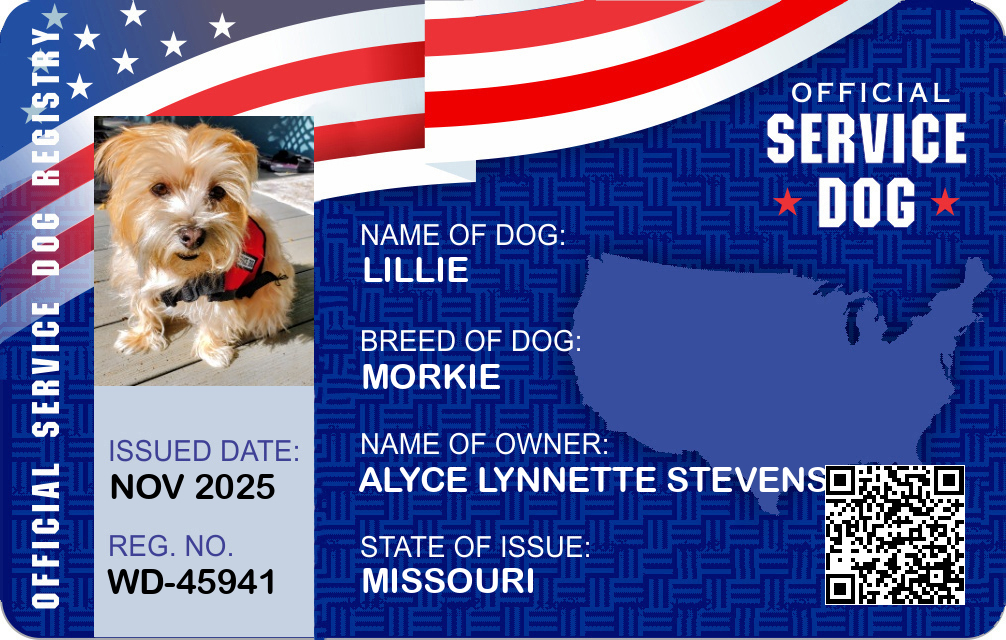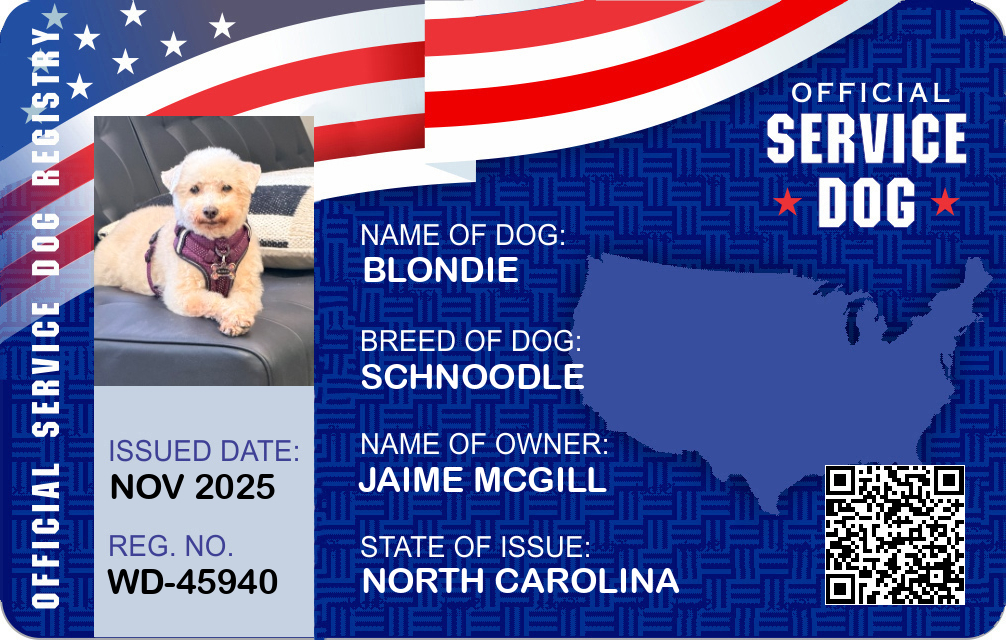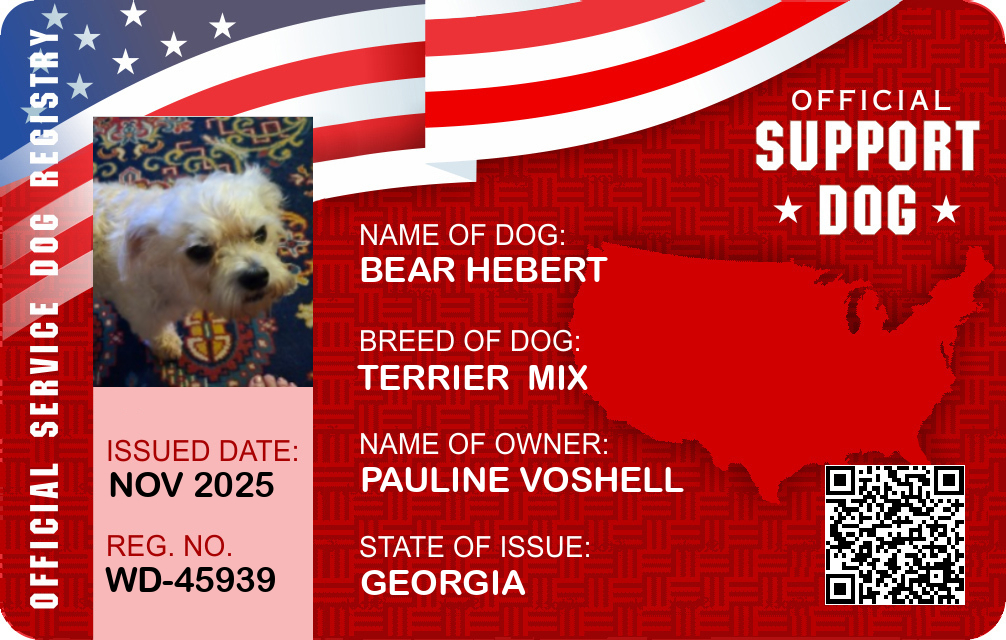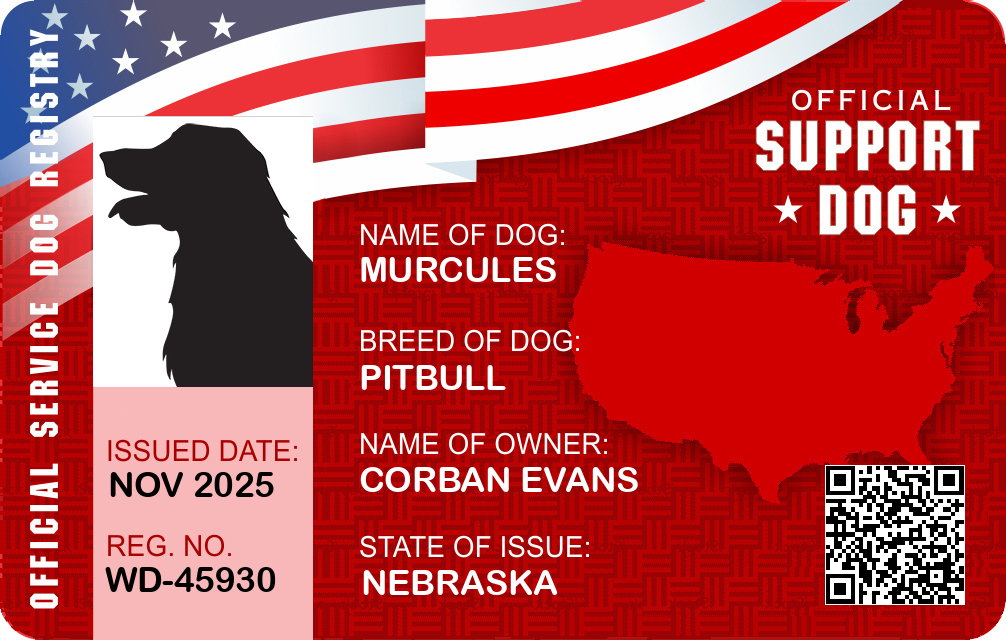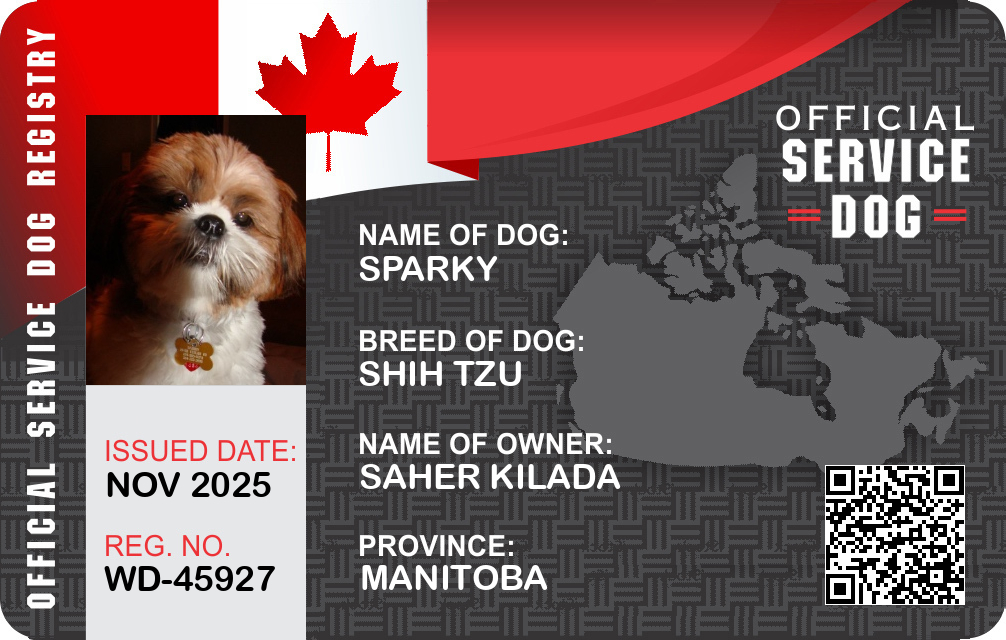Pennsylvania Service Dog Laws
Register Your Dog
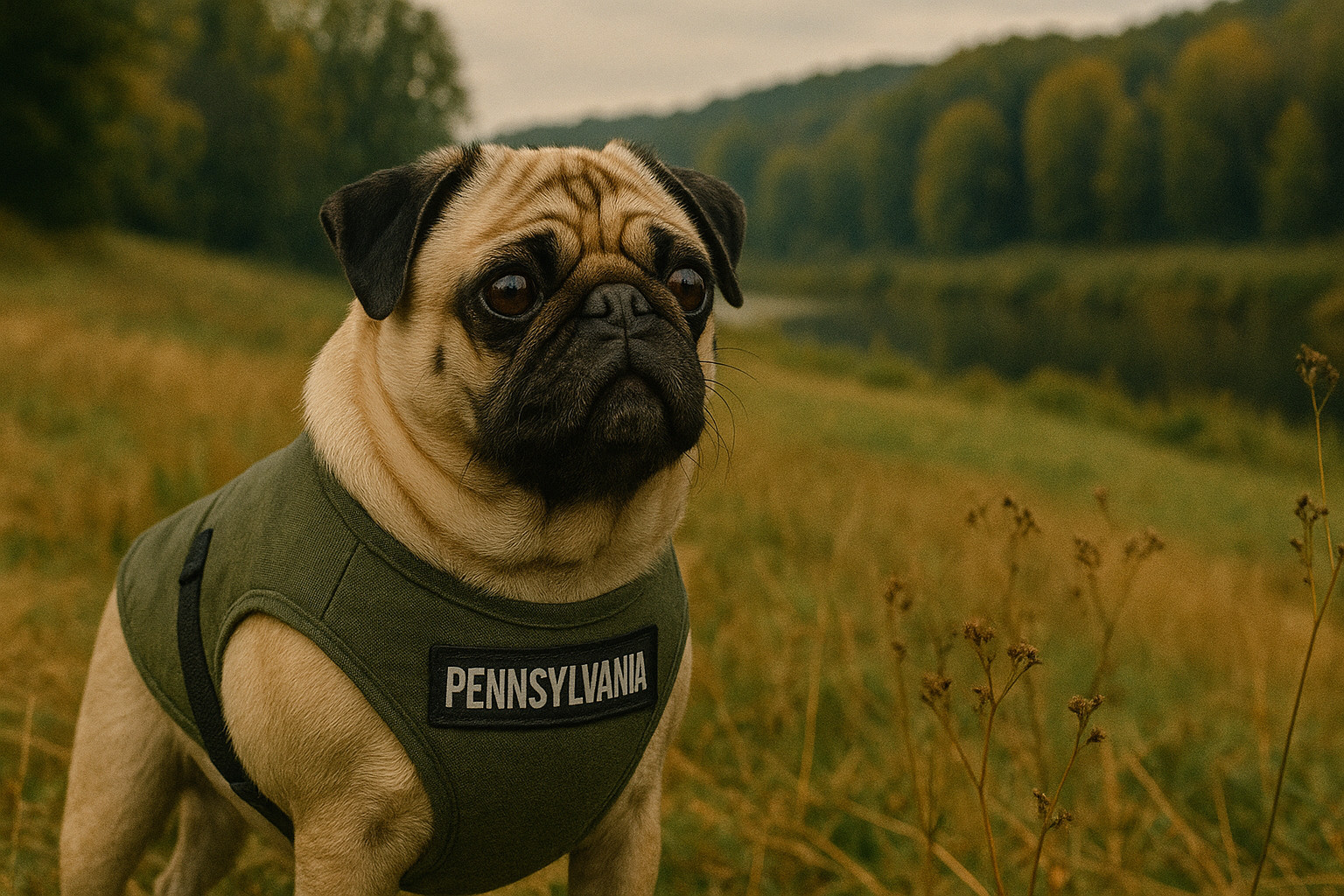
Service dogs are invaluable partners for individuals with disabilities, offering critical support that can significantly enhance their independence and quality of life. In Pennsylvania, as in other states, specific laws outline the rights of service dog handlers and delineate the responsibilities of public entities and private businesses. Understanding these laws, including the intersection of federal regulations like the Americans with Disabilities Act (ADA) and state-specific provisions, is essential for both service dog handlers and those interacting with them in professional capacities.
Overview of Service Dog and Legal Definitions in Pennsylvania
What is a Service Dog?
A service dog is a canine specifically trained to perform tasks or do work for an individual with a disability. The work a service dog performs must directly relate to the person’s disability, which can be physical, sensory, psychiatric, intellectual, or other mental disabilities. Examples include guide dogs for the visually impaired, hearing dogs for the hearing-impaired, and psychiatric service dogs that assist individuals with PTSD by interrupting anxiety attacks.
How Service Dogs Differ from Other Types of Assistance Animals
Service dogs differ significantly from other types of assistance animals, such as emotional support animals (ESAs) and therapy animals. Unlike ESAs, which provide comfort through their presence and are not trained to perform specific tasks, service dogs undergo rigorous training to assist with specific disabilities. Therapy animals, typically used in structured therapeutic environments like hospitals or schools, are not classified as service animals under the ADA.
Key Federal Laws Affecting Service Dogs (e.g., ADA, FHA, ACAA)
The ADA establishes guidelines that service dogs must be allowed in public places, requiring businesses and public spaces to modify practices to accommodate service animals unless it imposes a fundamental alteration or jeopardizes safety. The Fair Housing Act (FHA) mandates that housing providers make reasonable accommodations for service dogs, regardless of pet policies. Meanwhile, the Air Carrier Access Act (ACAA) previously allowed service animals in the cabin of airlines; however, recent amendments have aligned more closely with ADA regulations, providing the airline with the discretion to require paperwork.
State-Specific Service Dog Laws in Pennsylvania
Pennsylvania adheres to the federal definitions and requirements for service dogs but also enforces its own regulations that complement these standards. The state law mandates similar rights for service dog handlers in numerous contexts such as housing, public accommodations, and employment. Importantly, Pennsylvania also includes protections against discrimination and ensures access to individuals training service dogs.
Housing Rights and Responsibilities
In Pennsylvania, housing providers must accommodate service dogs under both the ADA and FHA. This includes rental properties, condo associations, and homeowners’ associations which must allow service dogs regardless of their usual pet policies. While landlords cannot require tenants to pay pet fees for service dogs, they may hold handlers liable for any damage the dog may cause. Clear communication between tenants and landlords is crucial to navigating these responsibilities.
Public Access and Accommodation
Under Pennsylvania law, service dog handlers are entitled to access all public accommodations, including restaurants, hotels, and stores. Handlers cannot be charged extra fees or segregated from other patrons. While businesses may inquire if the animal is a service animal and what task it performs, they cannot request proof of training or certification. Cases where service dogs may be excluded are limited to circumstances where the dog is out of control, or not housebroken.
Transportation and Travel Rules
Service dogs in Pennsylvania are covered under federal and state regulations for transportation services. Whether on public buses, trains, or taxis, service dog handlers have the right to travel with their dogs. Transportation services should not impose charges, but handlers are responsible for the supervision and care of the animal. With airline travel governed by the latest ACAA rules, handlers should check current airline policies before flights.
Employment and Workplace Considerations
The ADA’s Title I governs employment-related rights for service dog handlers. Employers in Pennsylvania are required to provide reasonable accommodations for employees requiring the assistance of service dogs, provided it doesn’t cause undue hardship to the business. This could involve allowing a se
rvice dog to accompany an employee to work or providing a designated break area for dog care. Discussions about accommodations should be proactive and collaborative, ensuring mutual understanding and compliance.Documentation, Requirements, and Processes in Pennsylvania
Service Dog Documentation and Who Can Issue It
While federal laws—including the ADA—do not mandate certification for service dogs, Pennsylvania recognizes that helpful documentation can aid in avoiding disputes. Physicians or licensed healthcare professionals typically issue documentation necessary for housing or employment accommodation requests, though this documentation is not universally required for public access.
Landlord, Business, and Provider Verification Rules
Inquiries regarding documentation are limited to specific scenarios. Landlords are entitled to request documentation to verify that the tenant has a disability-related need for a service dog. Similar requests in workplaces are made during the accommodation process. Public accommodations cannot demand documentation as a condition for entry, adhering strictly to ADA guidelines.
Rights, Limitations, and Legal Risks
Rights Service Dog Handlers Have in Pennsylvania
Service dog handlers in Pennsylvania have broad rights including access to public spaces, the ability to live with their service dogs regardless of pet policies, and the right to reasonable accommodations in the workplace. These rights are protected under state and federal law, ensuring that handlers maintain autonomy and independence across different life contexts.
Limits on Service Dog Protections and Common Restrictions
Although service dog handlers have extensive rights, limitations exist mainly for safety and practical reasons. Service dogs must be under control at all times, and businesses or service providers can ask handlers to remove their dogs if they are disruptive or not housebroken. Certain spaces with genuine safety concerns may implement more stringent regulations, though these situations are exceptions.
Penalties for Fraud or Misrepresentation
Misrepresenting a pet as a service dog is illegal in Pennsylvania. Such misrepresentation undermines the legitimate need and challenges faced by individuals with disabilities who rely on service dogs. Legal penalties for fraud can include fines and community service. The state has increased awareness and enforcement efforts to deter such fraudulent claims, contributing to the integrity of service dog programs.
Practical Guidance for Service Dog Handlers in Pennsylvania
How to Qualify for a Service Dog Legitimately
To qualify for a service dog, individuals must have a recognized disability under ADA definitions, and the dog must be trained to perform tasks that mitigate the disability. Prospective handlers in Pennsylvania should consult with healthcare providers to determine the necessity of a service dog and seek training from accredited organizations.
How to Talk to Landlords, Airlines, and Employers
Effective communication is key when discussing service dog accommodations. Handlers should clearly convey how a service dog assists them and understand their rights to reasonable accommodation. Being prepared with appropriate documentation, even when not federally required, can help in negotiations with landlords or employers, minimizing misunderstandings and disputes.
Summary of Service Dog Laws in Pennsylvania
To navigate service dog laws in Pennsylvania effectively, handlers should remain informed of both their rights and responsibilities. Awareness ensures not just compliance but also fosters environments of mutual respect and understanding. Recognizing where federal laws like the ADA, FHA, and ACAA intersect with state laws is crucial, along with practical measures to preemptively address potential challenges.
Summary of Key Points:
- Definition of Service Dogs: Specifically trained to assist individuals with tasks directly related to their disability.
- Federal and State Protections: ADA and state laws provide broad access rights across public spaces, housing, and employment.
- Documentation Needs: Often not required for public access but helpful for housing and employment accommodations.
- Legal Risks of Misrepresentation: Penalties exist for falsely claiming a pet as a service dog.
- Practical Tips: Clarify needs with landlords, employers, and service providers; maintain control of the service dog at all times.



